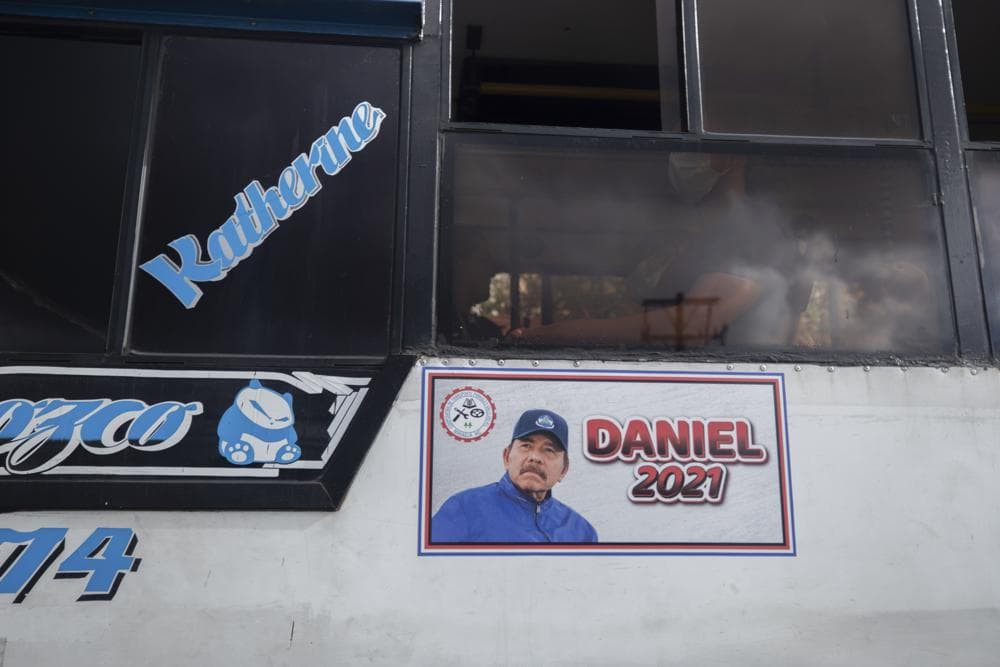ROME – With virtually no opposition leader left to imprison, the government of Nicaragua has moved on to its one remaining obstacle for securing reelection: The Church.
According to Rosario Murillo, the country’s vice president, the bishops and priests of the Catholic Church are the “sons of the devil” who supported the months-long civil uprising that began in April 2018 that left at least 320 dead, thousands wounded, tens of thousands exiled, and deepened the political, social and economic crises in the Central American Country.
“It was a diabolical interruption of a few weeks when they wanted to snatch everything from us to steal again, to settle there again, with blessings, which are truly unusual, unheard of blessings from people whose sanctity is in doubt, whose intermediation before the spiritual powers of Jesus Christ are completely in doubt,” said Murillo.
Murillo, who has been sanctioned by the United States, Canada and the European Union questioned: “how anyone can be a pastor if he blesses crimes, how can anyone be a pastor if he blesses and approves that people continue to die on the roadblocks, that people continue to lose everything they have, that women who are going to give birth are not allowed to pass in the ambulance?”
In her remarks, issued during the weekend as the government marked the 41st anniversary of the Nicaraguan Army, the vice president was cherry-picking incidents from the troubled months of 2018, when Catholic churches opened their doors to care for the civilians wounded during the protests who were refused treatment in public hospitals. Cathedrals also opened their doors as refuge to the thousands who were facing tanks deployed by the government to quiet down the protests.
At the government’s request, the bishops conference attempted to mediate between President Daniel Ortega and the protestors, but when the talks proved unsuccessful, the ruling couple quickly blamed the Catholic prelates for the failure.
Nicaragua is set to hold presidential elections Nov. 7, but it’s unclear who will run against Ortega and Murillo, seeing that in the past 50 days they’ve imprisoned 30 opposition leaders, including all the presidential hopefuls.
In addition, several opposition parties have been declared illegal, and the only remaining printing newspaper, La Prensa, was seized by the police last Friday.
Murillo also defined what happened in 2018 as “terrorist crimes,” and faulted the bishops for being “fake shepherds” performing “satanic rites” and practicing “witchcraft,” allegedly in an attempt to bring down the government.
After accusing the Nicaraguan clergy of being “shamans,” Murillo said she’d lost confidence in the Church.
“We lose confidence in an institution that did not defend us as children of God, and instead defended crimes against humanity to tell the truth, that is why with much pain, the commander [Ortega] and I say truthfully that they are children of the devil,” the vice president said.
Several Nicaraguans consulted by Crux through the encrypted messaging service Signal noted that they believe this last comment to be the most dangerous.
“She’s accusing us of condoning crimes against humanity that were allegedly committed by the protesters,” a priest said, speaking on the condition of anonymity. “Regardless of the fact that they were the criminal ones who abused power, the fact that she’s accusing us of a crime gives them a carte blanche to do with us as they wish. People have gone to prison for much less in this country.”
Though the reticence of people on the ground to speak to the media is understandable, this does not mean the bishops will remain quiet.
During Sunday Mass, Bishop Rolando Alvarez said Nicaragua is living tragic moments because the “infernal dragon” wants to put an end to everything that represents hope. Instead of falling in despair, he asked believers to not be afraid because the dragon will not be able to steal the tenacity of the people to build a new Nicaragua.
He said that in the country today there’s a “fierce struggle between good and evil,” with the latter being like “the infernal dragon, wanting to wipe out everything in its path, igniting with fury and anger at anything that represents a sign of hope.”
The bishop said that hope will rise like “the Phoenix,” and that is why he urged the faithful not to be afraid and to cry out for peace, justice and freedom.
“They try to rule and impose history by closing every door or window of hope,” he said. “Yet our hope rises and rises. We fill ourselves with strength, energy, vigor and inner enthusiasm to cry out without fear in the temples, in our homes, in our families, in our hamlets, waterfalls and streams, in the mountains and in our cities, that love has conquered hatred, that hope overcomes despair, that they will not steal our strength, they will not steal our inner energy, nor the tenacity to build a new Nicaragua.”
Follow Inés San Martín on Twitter: @inesanma















